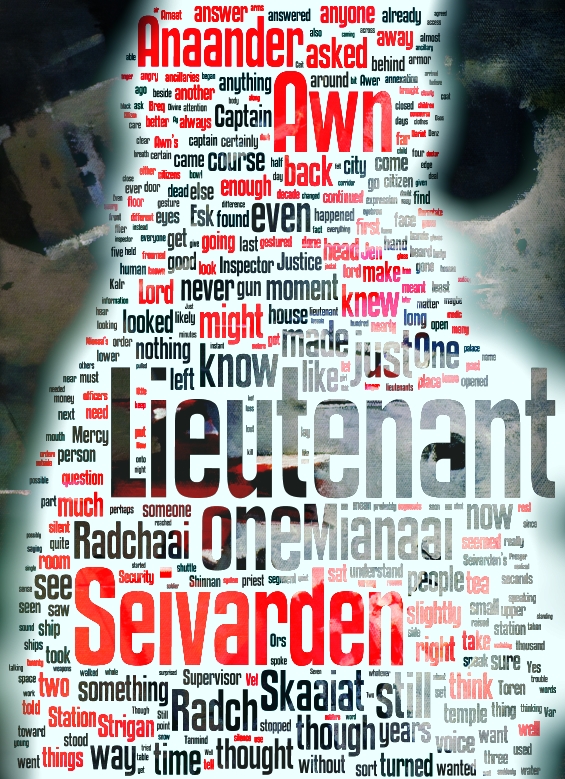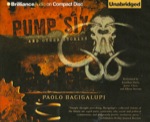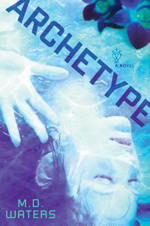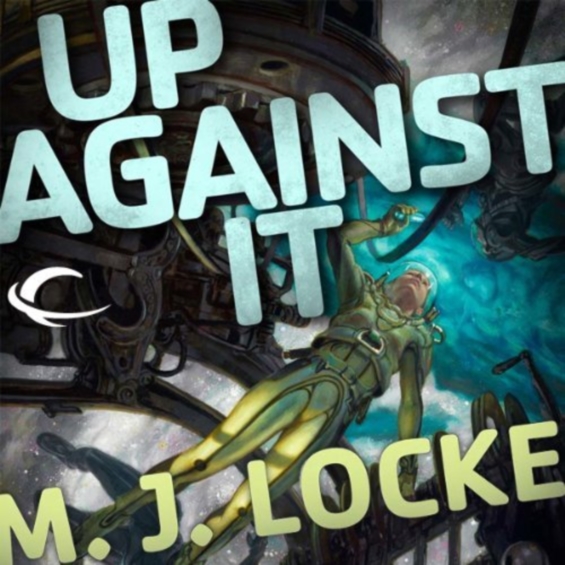
 The SFFaudio Podcast #266 – Jesse, Luke, and Juliane Kunzendorf discuss When The Sleeper Wakes by H.G. Wells
The SFFaudio Podcast #266 – Jesse, Luke, and Juliane Kunzendorf discuss When The Sleeper Wakes by H.G. Wells
Talked about on today’s show:
Julianne’s first SFFaudio Podcast, what do we call them?, readers and talkers, 1899/1910/1923, When The Sleeper Wakes, The Sleeper Wakes, The Sleeper Awakes, Blackstone Audio’s audiobook version, the serialization in The Graphic magazine, the 1910 preface, “an editorial elder brother”, going to the original sources, a forecast of technology, technological changes between the revisions, aeroplanes and aeropiles, the introduction to the 1923 edition, “fantasias of possibility”, “suppose these forces go on novel”, H.G. Wells thought the rich were evil geniuses (prior to meeting them), “rather foolish plungers”, “vulgar rather than wicked”, Ostrog, “a nightmare of capitalism triumphant”, capitalist/socialism (kind of like Japan), The Unincorporated Man is pretty much the same story, yay Marxism!?, when Graham wakes up, Chapter 7, there only audiobooks in the future, The Man Who Would Be King by Rudyard Kipling, The Madonna Of The Future by Henry James, Heart Of Darkness by Joseph Conrad, phonetic spelling, an H.G. Wells way of writing, is it the nature of a serial, the reader transplanted into the year 2100, The War Of The Worlds, suicide, Isbister, Warming, Ostrog, Lincoln, “body fag is no cure for brain fag”, “while he was breaking his fast”, the language, lying in a crystal box, a passive character, establishing the genre, space elevators, Buck Rogers has the same premise, Idiocracy, Eine Billion Dollar by Andreas Eschbach, A Connecticut Yankee In King Arthur’s Court by Mark Twain, the importance of money, the gilded age, wealth disparity, the labour company, a dystopia along the lines of Brave New World, the Martian invasion, The Time Machine, is this the start of the Morlocks and the Eloi?, 1984 by George Orwell, the proles, the pleasure cities, distractions, the value of work beyond being paid, a class trap, what is Wells saying?, Wells’ ambivalence towards the proles, there are no more school examinations, is this a meritocracy?, technological dystopias (like 1984), social dystopias, Brave New World is a medical dystopia, genetic dystopias, knowing you live in a dystopia, North Korea, knowledge of other societies, the time before Big Brother, Julia, the Anti-Sex League, genetically dumbified, Flowers For Algernon by Daniel Keyes, religious dystopia, advertizing Christianity, prosperity gospels, church revivals, advertising, the babel machines, movies and television, what will this culture do to the culture?, “people don’t read”, airplanes, heavier-than-air aircraft, smashing airplanes into other airplanes, aerial ramming, flying machine vs. aeroplane vs. airplane vs. aeropile, My First Aeorplane by H.G. Wells, rocketships, the pilot’s union, the look of the airplane, the clothing, Victorian age dresses, the church, hanging in the air, the Thames has run dry, megalopolis, the building material, the Eiffel Tower, steel, concrete, plastic, glass, carbon fiber, biotech, Pandora’s Star, a coral house, 3D printing, Ikea Hacks, print on demand houses, economics, factories and automation, The Roads Must Roll by Robert A. Heinlein, The City And The Stars by Arthur C. Clarke, slide-walk, edamite, Ostrog, Ostrogoths, Lincoln, foment a revolution, race and racism, Senagalese, ostrog as “fortress”, a Serbian Orthodox Church, Ostrog will boss the show, “in bounds”, are these are revolutionary names?, Che Guevara, Abraham Lincoln’s freeing the slaves, thug force, Berlin, June 17th, 1953, the Berlin Wall, outside forces, Dan Carlin’s Hardcore History, Gurkhas, “see we’re all friends”, smiling bright shiny teeth, “they are fine loyal brutes”, racism is in there but it is not the point of the book, The War Of The Worlds, a little hypocritical, we can’t see the issue, massive economic suppression, calculating boys, hypnotism, economic slavery, the wealth gap, the White Council, the blaring speakers, the media firehouse, talk radio, people wearing their headphones everywhere, podcasts, each one of those streams are newspapers, a newspaper for everybody, broadsheets vs. tabolids, your newspaper tells your class, daily free newspapers, Jack The Ripper, Melville Macnaghten, Michael Ostrog (thief and con-man), the symbolism of the aircraft, the three books, Helen is the Madonna of the future, it’s a joke, the novel’s end, ‘my Graham dies without certainty of victory or defeat’, ambiguous airplanes, “literally that’s his dream”, flying dreams, cliffs and high places, Isbister and Warming -> Lincoln and Ostrog, “its fun”, “in such a fall as this countless dreams have ended”, dream falling, the different endings, the future of that future, Olaf Stapledon’s The Last And First Men, many futures, Olaf Stapledon takes what Wells does a little farther, Graham as a Christ figure, risen from the dead… etc., in Graphic detail, full colour holographic Jesus, the empty tomb moment, allusions to other literature in the Bible, Arthur C. Clarke, the Son of Man, A Story Of The Days To Come, the emptying of the countryside, the enclosures, Scotland, Canada, Glasgow, Berlin, well more than 50% of the world’s population lives in cities now, Among Others by Jo Walton, Wales, the merits of country living, the economic theory behind everything, access to internet, staring at the internet, services, live entertainment, “my choice of Christian girls was three girls”, poor Luke.












Posted by Jesse Willis

 The SFFaudio Podcast #282 – Jesse, Tamahome, Bryan Alexander, and Julie Davis discuss Ancillary Justice by Ann Leckie.
The SFFaudio Podcast #282 – Jesse, Tamahome, Bryan Alexander, and Julie Davis discuss Ancillary Justice by Ann Leckie.


 The Girl in the Road
The Girl in the Road











 Archetype (Archetype #1)
Archetype (Archetype #1)